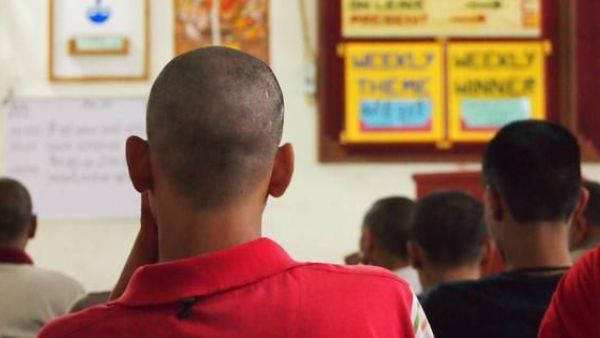Inmates at the Treatment Centre for Addicts, which is part of the Anti-Narcotics Department (AND), spoke about their journey towards recovery while recalling parts of their lives which, they said, were “dark” and “nightmarish”.
The centre, according to its director Fawaz Masaeed, has a capacity of 170 beds and treats around 1,300 individuals yearly. The period of treatment can range from two weeks to several months, depending on the severity of the situation.
“Most patients take time off work if they’re employed, but some of them cannot afford to stay for the full period required. Thus, we try to give them extensive treatment, and follow up with them regularly to avoid lapses,” Masaeed told The Jordan Times in a recent interview.
Osama, an alcoholic, said he hopes to fully recover before the next university semester starts. “I want to get better and return to my normal life before I became an addict. I want to move on and start a new chapter. I want to prove to my family that I can become a better person,” he stated.
Osama, who started drinking six years ago, said that during the month before his arrival, he felt “completely out of control”.
“I’d stay outside the house for days, doing nothing but drinking. The only time I’d stop is when the bars would close at sunrise. I couldn’t sleep, so I would just lie there on a friend’s couch until they were open again,” he recalled.
The young man, who has been admitted into two other centres before, said he checked himself into the centre after deciding “he did not want to cause his family any more pain”.
“I didn’t take the treatment seriously at those places because things weren’t as strict as they are here, but that’s good; I want to be on a strict schedule so that I can get my life back as soon as possible,” he stressed.
According to Masaeed, most patients admit themselves into the centre of their own free will, while small numbers are checked in by their parents or guardians.
The centre offers its patients a comprehensive treatment plan that includes exercise, IT training sessions, crafts, an inclusive library, regular awareness lectures and psych evaluations.
“It is important that these individuals gradually reenter the real world, as many of them have lost touch with it. That is why, other than the physical treatment, we engage our patients in activities that allow them to slowly regain their focus,” said Mosab Adwan, a therapist at the centre.
He noted that crafts, in particular, give therapists insight into the patient’s state of mind as the carving of shapes and words help them evaluate the patient’s thoughts.
Flowers, for instance, indicate that patients “hope for a better life”, religious drawings indicate “a longing for a reunion with God”, while names show “a feeling of guilt towards them”, according to Adwan, who recalled “one person would continuously carve his mother’s name, and he later revealed that he had wronged her and physically abused her”.
Fadi, a marijuana addict, told The Jordan Times that admitting himself into the centre was “the best decision of his life”.
After struggling with his addiction for four years, he said he felt like he had entered “a non-ending cycle he wanted to get out of”.
“I felt as if I was trapped. One day I woke up and decided that enough was enough,” he remembered.
Having lost his close friends, family and even his taste buds, Fadi entered the centre, willing to stay “as long as it takes” to get better.
The treatment, which is free and confidential, allows patients to be treated without fear of future prosecution, according to Masaeed.
“We want to give patients a sense of security. We don’t even ask them the same kind of questions that the department does so that they don’t feel as if it’s a trap,” he noted.
Odai, a drug addict, admitted himself into the centre after he had already been prosecuted.
“When I was caught and put in jail for 9 months, I stopped using drugs. As strange as it sounds, it was actually the best months of my life,” he told The Jordan Times.
He lost three shops because of his addiction, which made him waste huge amounts of money, as much as JD800 per week, although he could not recall a single way of how it was spent.
“I would live weeks in blurs. I still don’t remember how I got here. A day after I was admitted, my brother told me I threatened to kill him and my parents as well. I have no recollection whatsoever of that,” he said as he tried to remember how he got to this point.
Odai entered the centre with help from his family, who supported his decision to seek professional help after his jail time. After 9 months of being clean, one outing with “a bad influence” sent him back to square one, which is when he decided to continue his journey in rehab.
“These young men have made mistakes, deadly mistakes, yes, but still mistakes. Our role here is to help them recover, because you cannot turn away someone who wants to get help, that is inhumane,” Masaeed concluded.
This article has been adapted from its original source.








